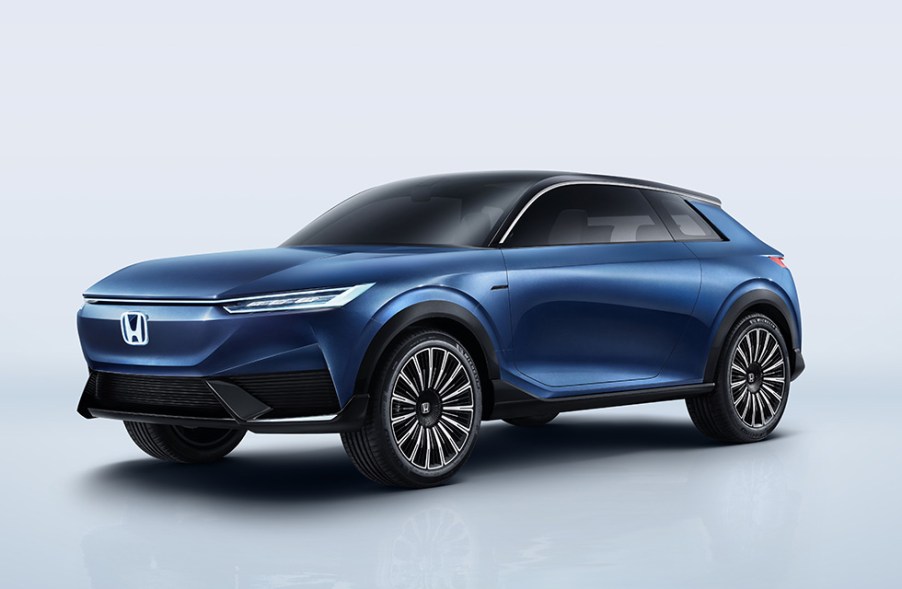
Honda to Go All-Electric by 2040 With e:Architecture
Honda’s short-term EV plan was to team up with GM, sharing the Ultium battery platform for their upcoming EVs. With 30 EVs said to use the tech by 2025, the battery platform ensures longer ranges and faster charge times. But Honda has plans to step out of GMs shadows, creating their own e:Architecture technology.

Honda’s electrification strategy
In order to get to the fully electric car lineup by 2040, Honda is phasing EVs into their lineup bit by bit. They pledge that 40% of their cars sold globally will be EVs but 2030, then 80% by 2035. Despite being one of the first economy car automakers in the states, Honda’s EV initiative is lackluster when compared to others.
That said, Honda’s joint effort with GM will produce two crossover SUVs by 2024, one of which has been dubbed the Prologue. An appropriate name for the Honda’s EV origin story. The second crossover will wear the Acura badge, but there’s no information yet. That said, it’ll still be riding on GM technology rather than in-house Honda components, which begs the question:
What is e:Architecture and when will it arrive?

To understand e:Architecture, or GM’s Ultium platform, you’ll need to understand what a battery platform is. The name is somewhat self-explanatory: a battery platform is like the chassis of an EV. The ability to put different models on a single platform allows for faster production and simpler maintenance.
As for when Honda’s e:Architecture will arrive, the automaker plans to release it in the latter half of the 2020s. Over 5 trillion yen (or 46 billion US dollars) will be invested in Honda’s EV effort, adhering to Japan’s goal of cut their country’s emissions by 46%. By 2050, the government plans for the entire country to become entirely carbon neutral. The automaker promised to make every effort to keep that plan intact, but electric vehicles aren’t the only route Honda is taking to cut their carbon impact.
Honda is also focusing on fuel-cell technology

With the Clarity on sale in California, fuel-cell technology is something Honda still believes in. The infrastructure might not be everywhere yet, but fuel cells allow for cars that can be filled up “at the pump.” Granted, it’s a different kind of fuel, but it one-ups electric cars in terms of refueling.
Despite Honda developing their own EV platform, their ties to GM don’t end once they stop using the Ultium battery platform. As part of the deal, Honda and GM will continue to develop hydrogen fuel-cell technologies, particularly for commercial vehicles.
So Honda won’t be entirely EV independent for a few years. But they’re taking the right steps in order to eliminate emissions and electrify their lineup.


